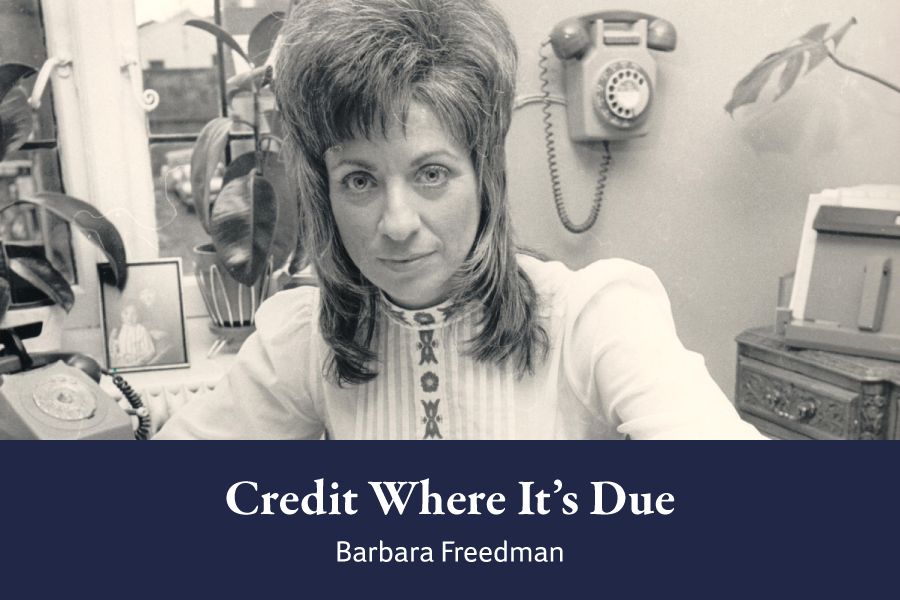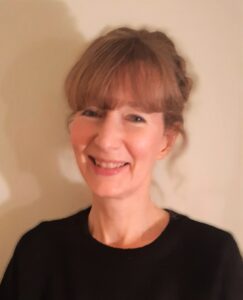When we start working with an author here at LifeBook Memoirs, what really intrigues us is watching a life unfold on the page. The stories of some of our authors are full of intentionality, of plans made at an early age that define the rest of their lives. For others, the way is winding or punctuated with reversals, new directions, surprises or unexpected opportunities.
For Barbara Freedman, meeting her husband and embarking on her career were matters of serendipity, or maybe even fate, but they certainly weren’t planned. Instead, both husband and career came as surprises to her.
A fortuitous meeting
Barbara met her husband, Harold, only because a friend she bumped into in the street on the way home from Hendon Station in London one February evening happened to be talking to him. Two weeks and two days later, she and Harold were engaged, and they married in March of the next year. Children followed, as did a 56-year marriage in which Harold was, Barbara says, her strength and support. Had Barbara caught a different train that day, or perhaps dawdled home, she might never have met the man whom she knew, at their very first meeting, she would marry.
A role model for successful women
Barbara’s highly successful career came to her as an unexpected and unsought opportunity. As a child, she had wanted to be a primary school teacher when she grew up, but what she actually did was quite different. At 17, her dream of teaching thwarted by circumstance, she left school and spent the next few years working as a comptometer operator in central London, as a shorthand typist struggling with carbon copies and Roneo machines, an office manager and, once she was married and had small children, a peripatetic manicurist. When her brother-in-law asked her to help him run his debt-collection company, it never crossed her mind that she was about to take her first step on a path leading to ownership of her own large and lucrative debt collection business. With no idea of what the work entailed, she agreed to help, resolving on her first day to “treat everybody as you would wish to be treated.” In a business model that was probably unique in the industry at the time, Barbara began building principles of empathy and understanding for clients and debtors into the company’s practices, and she trained her staff well.
Eighteen months later, Barbara left her brother-in-law’s business, rented an office and started her own debt-collection agency. She soon built up a very impressive client base, became a role model for successful women in the industry and, among other notable achievements, became a founder member of the UK’s Credit Services Association, a professional association of reputable debt-collection businesses. Civic recognition followed in the form of becoming a Freeman of the City of London and a Liveryman, and she enjoyed membership of further City organisations. In an unusual turn of events, the BBC also came calling, using her offices as a guide for the premises of the fictional debt-collection agency in the 1980s television series The Sharp End, starring Gwen Taylor. Debt collecting on the television is, Barbara observes, not at all like her own business, but it was nice to be part of the inspiration.
Modesty and humour
Like the many authors who make some of us at LifeBook wonder what we have been doing with our own lives, Barbara has achieved much, but she recounts her achievements with modesty and self-deprecating humour. She had notable success in an industry that, in her early days, had little room for women, and her principled methods of doing business helped change the ways in which debt and its collection is managed, but she says little about the personal effort and long hours this must have cost her. When she speaks of her significant fundraising efforts for Cancer Research UK, she commends the celebrities she persuaded to speak at charity functions and to run auctions, and she applauds the part played by friends and family, but it is more or less left to her readers to appreciate her commitment to and enthusiasm for these endeavours. That she foregrounds the support and contributions of others in a book about herself tells us a great deal about what an impressive woman she is.
Written by Kate Parry, LifeBook Memoirs editor


